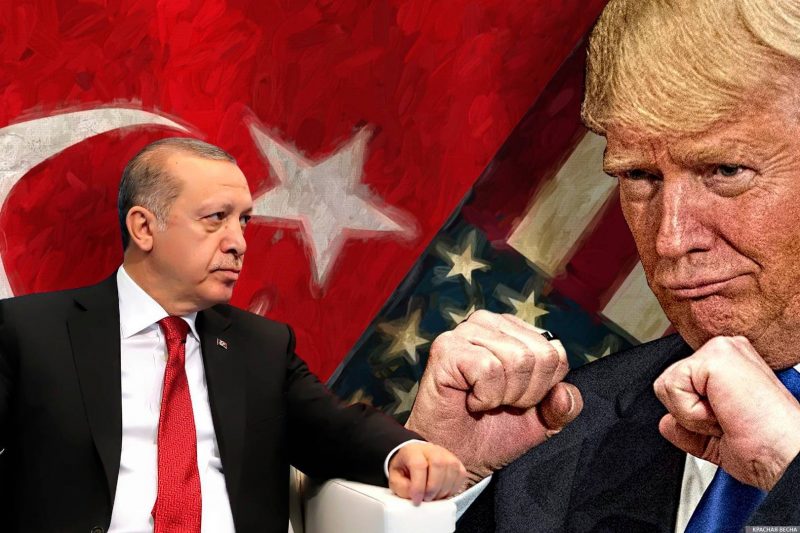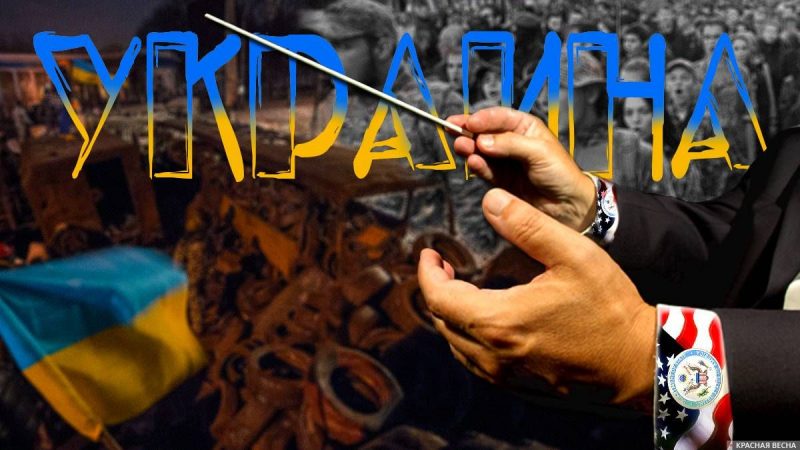19.10.2019, Moscow.
US-Turkey talks on Syria; Donald Trump’s letters style; and the suspension of hostilities between Turkey and the Kurds. Read more about the key events of October 17 surrounding the Turkish military Operation Peace Spring in the Rossa Primavera News Agency summary.
Last night, it became known that on October 9, US President Donald Trump sent a letter to Turkish leader Recep Tayyip Erdogan, urging him not to start a military operation in Syria, and expressing the desire for the US to mediate a deal between Turkey and Kurdish leaders.
At the same time, Trump suggested to Erdogan not to become “responsible for slaughtering thousands of people”, and not to force Trump to “be responsible for destroying the Turkish economy” and “not to be a fool.” The Presidential Press Service confirmed the authenticity of this letter.
In response, the Turkish side claims that Erdogan did not read the letter, but immediately threw it in the waste bin, and announced the beginning Operation Peace Spring. Moreover, Erdogan’s discontent was caused not by letter’s tone, but by proposal to negotiate with “terrorists” (Turkey considers Kurdish Syrian Democratic Forces, SDF, a terrorist organization).
“We have not seen the level of our relations as low as it was seen in this letter, but the American people can see it for themselves, and many of them wrote in their comments in social media that such letters are unacceptable,” commented Turkish Foreign Minister Mevlut Cavusoglu on Trump’s letter to Erdogan.
The Kremlin called the tone of Trump’s letter to Erdogan “unusual”. “You don’t often encounter such language in correspondence between heads of state. It’s a highly unusual letter,” stated Russian President spokesman Dmitry Peskov. And it’s hard to argue with him.
In anticipation of the talks, Ankara continued to provide reports in the information field. Turkish Minister of National Defense Hulusi Akar said that Kurds from the People’s Protection Units (YPG, military wing of Syrian Democratic Forces, SDF) could use chemical weapons in Syria, and blame it on the Turkish side.
Turkish Foreign Minister Mevlut Cavusoglu, together with Minister of National Defense Hulusi Akar and Turkish President’s press secretary Ibrahim Kalyn, held talks in Ankara with new US Presidential Adviser on National Security Robert O’Brien and the US Special Representative for Syria Engagement James Jeffrey.
The closed-door meeting lasted approximately 45 minutes. It was only the first US-Turkey meeting on October 17th. But not at all the last.
At 12:30 Turkish time, US Secretary of State Mike Pompeo and his delegation landed in Ankara. 45 minutes later, US Vice President Mike Pence and his delegation followed on his plane.
While Pence and Pompeo were arriving at the presidential complex in Ankara, it became known that Erdogan’s spokesman Ibrahim Kalyn received a delegation from Russia led by Russia’s special envoy on Syria, Alexander Lavrentiev.
Following the meeting, Turkish Foreign Minister Mevlut Cavusoglu stated that Turkey would not have objections to the withdrawal of Kurdish forces from the Syrian-Turkish border, which would be organized by Moscow and Damascus.
Yesterday’s concerns about the incorrect translation of Erdogan’s statement turned out to be true; the Turkish president welcomed Pence and Pompeo, although there were reports that he refused to speak with anyone other than US President Trump.
Tense negotiations lasted for almost 3 hours behind closed doors. Turkey was represented by Vice President Fuat Oktay, Foreign Minister Mevlut Cavusoglu, Minister of Treasury and Finance Berat Albayrak, Minister of National Defense Hulusi Akar and Chief of the General Staff of the Turkish Armed Forces Yashar Guler.
In addition to Vice President Pence and the head of the State Department, Pompeo, Robert Charles O’Brien, US Presidential Advisor on National Security, James Jeffrey, US Special Representative for Syria, and David Satterfield, US Ambassador to Turkey, participated in the negotiations on the US side.
Prior to that, Erdogan and Pence met separately behind closed doors.
The sides had productive talks. At their end, an agreement to suspend Turkey’s Operation Peace Spring for 120 hours was reached, said Pence. During the 120-hour pause, Kurdish units must leave the security zone on the Syrian-Turkish border. Turkish military operation will end after the Kurdish units complete their withdrawal, added Pence.
Somewhat later, information came out that the Kurds agreed, and Mazlum Abdi, the Syrian Democratic Forces (SDF) commander-in-chief said that his side accepted the ceasefire.
In his usual style, Donald Trump commented on the results of the agreements between Washington and Ankara in a message he posted on Twitter. Trump welcomed the ceasefire and wrote that these agreements saved “millions of lives.”
Trump explained his drastic actions by the need to conclude an important agreement in regards to the Turkish Operation Peace Spring. In addition, Trump praised Erdogan, called him his friend and said that Turkey is fortunate to have such a strong leader. Trump expressed this praise to the Turkish President during a trip to the state of Texas when talking to reporters, reports The Hill.
However, not everyone in Washington is happy with the outcome of the negotiations. Such US senators as Jim Risch and Robert Menendez announced on Thursday that they are working on a new legislation to introduce further sanctions against Ankara. At the same time, senators want to raise the issue of Turkey’s exclusion from NATO (Turkey is the second largest army in the alliance).
Russia also attracted some attention. Senators are confident that new sanctions must be imposed against Russia because it conducts “malicious activities” in Syria, including support for Syrian President Bashar al-Assad. According to Reisch and Menendez, at the moment, there is no information as to what other sanctions should be imposed on Russia.
While tense negotiations took place in Ankara, the Syrian Army continued to take control of settlements on both sides of the Euphrates river. Reports regarding Syrian Army entering the Kurdish city of Kobani, north of Manbij, near the border with Turkey are very significant. According to the agreements between Pence and Erdogan, withdraw of Kurdish forces to 30 km from the border between Syria and Turkey is planned for virtually its entire length.
Moscow and Damascus did not participate in the negotiations, and Kobani, according to the results of negotiations, is located in the area which Kurds agreed to leave. Does this mean that trilateral consultations between Moscow, Ankara and Washington will lie ahead? We will find this in the coming days.
Source: Rossa Primavera News Agency




